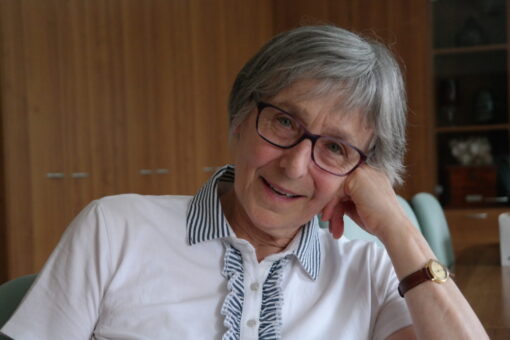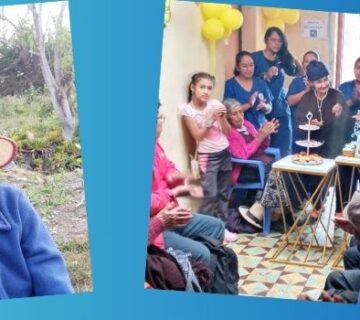A volume of Chiara Lubich’s works entitled “Letters” has been on sale in Italian bookshops for several months. We spoke to Florence Gillet from the Chiara Lubich Centre, a theologian and scholar of the Focolare Movement’s founder who edited the publication.

Arriving at the Chiara Lubich Centre, near the International Focolare Centre in Rocca di Papa (Italy), I am warmly welcomed by Dr Gillet who invited me into the meeting room. Everywhere there are cupboards containing plaques and objects commemorating honorary degrees and gifts received by Chiara Lubich during her trips to different countries around the world, as well as numerous books on the foundress of the Focolare Movement translated into various languages, some of which have been written or edited by Florence Gillet.
As we start talking, her accent reveals her French origins. She tells me that she came across the charism of unity at the end of 1965. Three months later she was at the international little town of Loppiano in Italy, to go into depth about the ‘ideal’ she had been looking for for so long and eventually found. Studying theology at the Pontifical Gregorian University took her to Rome where she was one of the first women to attend the university. She then returned to Paris for a few years then back to Rome. Her face lights up when she recounts her experiences in a number of African countries where she set up “temporary focolares”, so called because they are only there for a certain period of time. In 2008, she was invited to join the Chiara Lubich Centre, founded in that year, to study and work on publications of the writings of the Focolare Movement’s foundress concentrating right from the start on the cornerstones of the Spirituality of Unity. “Letters 1939 – 1960” which she edited was published recently as part of a series entitled The Works of Chiara Lubich.
 “There is great variety in these letters”, explains Florence Gillet. “Some are pure spiritual direction; then there are the updating letters; letters of consolation; letters that flow from Chiara Lubich’s soul, especially those written to her sister which are very deep and strong. But they all have something in common. First of all, the literary genre, namely that they are all letters. Secondly, you find something of Chiara’s ‘soul’ in each one of them, the way she knows how to ‘make herself one’, as St Paul says when he declares ‘I have made myself all things to all people’. Even in communicating her secret, since the clear reference to Jesus forsaken is evident everywhere’.
“There is great variety in these letters”, explains Florence Gillet. “Some are pure spiritual direction; then there are the updating letters; letters of consolation; letters that flow from Chiara Lubich’s soul, especially those written to her sister which are very deep and strong. But they all have something in common. First of all, the literary genre, namely that they are all letters. Secondly, you find something of Chiara’s ‘soul’ in each one of them, the way she knows how to ‘make herself one’, as St Paul says when he declares ‘I have made myself all things to all people’. Even in communicating her secret, since the clear reference to Jesus forsaken is evident everywhere’.
What can this volume be compared to? This is the question Florence Gillet asks herself in the introduction and she responds with a very eloquent image: “If it were a garden, it would be an English garden without geometric shapes or symmetries but where nature is poetry and freedom with rigour and order. If it were a road, it would be a path, at times adventurous but one that is well-marked, with a clear destination and an experienced guide. If it were a house, it would be hospitable, with many interconnecting rooms, each in harmony with each other, warm and open”.
The book contains 338 letters (a selection of the many letters written by Lubich) that bring the reader into direct contact with the early years of the nascent Focolare Movement and the development of its charism. “I advise everyone to make the effort,” Florence continues, “to start reading from the introduction, to grasp the key to the reading, and then continue with the letters, one by one, in an orderly way, letting them ‘speak to the heart'”. The reader will find letters to individuals, letters to nascent communities, letters to members of her family; They will find other letters that are more doctrinal, in which Chiara explains her Ideal. “Producing this book has been a fascinating project,” she concludes, “and I think readers will find it fascinating too”.
Carlos Mana


 Italiano
Italiano Español
Español Français
Français Português
Português




No comment